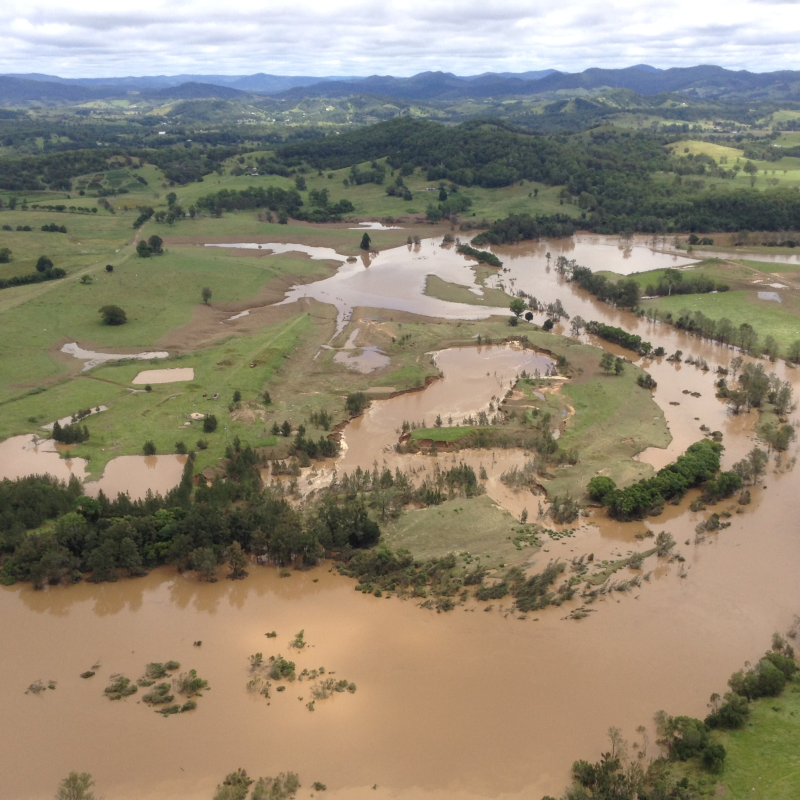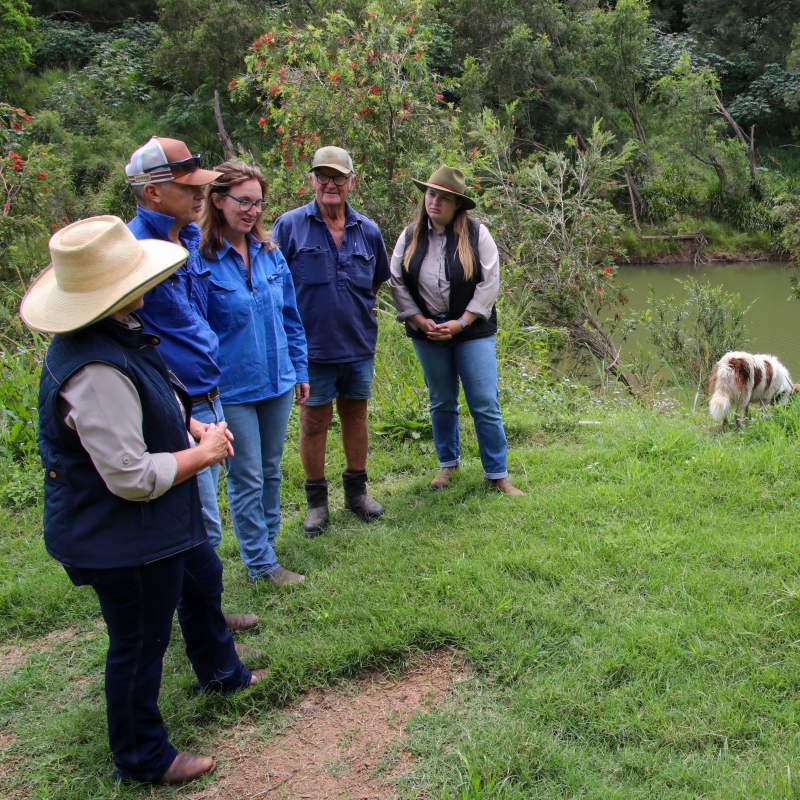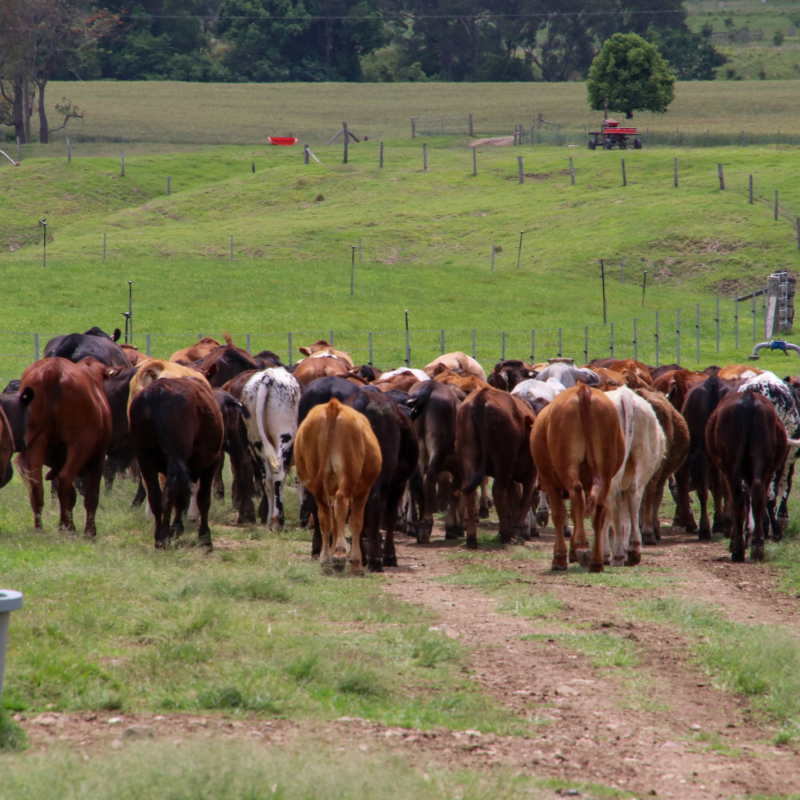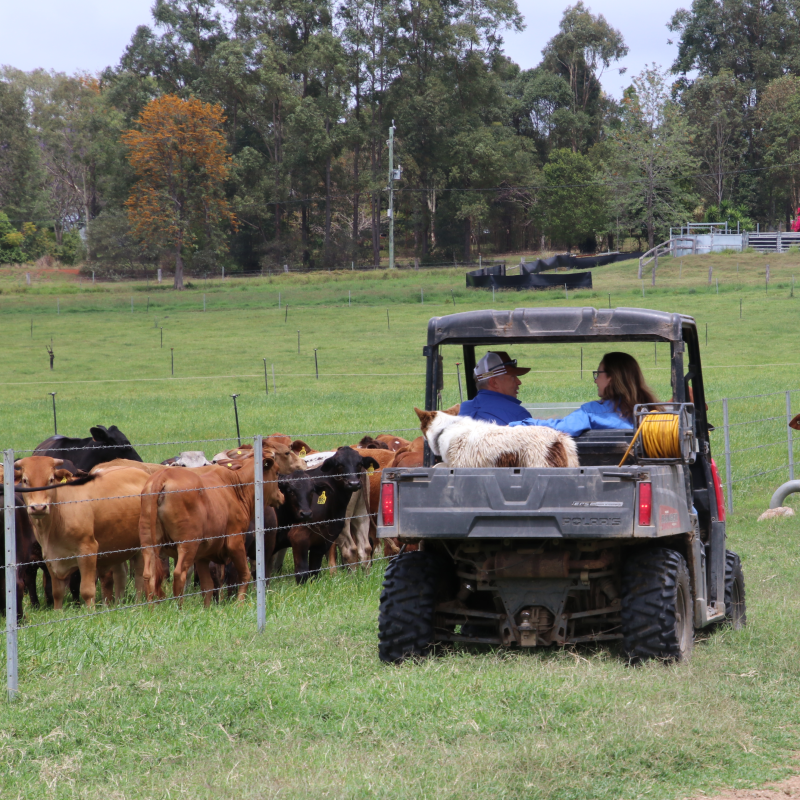Readying farms with robust disaster action plans
Chris and Julie Leacy own and operate three properties in Queensland’s Burnett Mary region, at Lagoon Pocket, Curra, and Neusa Vale, where they run a mixed enterprise of cattle, silage and hay.
After moving to Gympie in 2020 from Adelaide, South Australia, the Leacys weathered several small floods, however, nothing prepared them for the severe weather of the 2021-22 season.
During one deluge, the Leacys' Neusa Vale farm recorded 332mm of rainfall in just six hours, while 80 per cent of their land at Lagoon Pocket, which has a large frontage along the Mary River, went under.
Like many producers in the affected areas, the Leacys suffered significant damage to their properties.
In response to the weather impacts of the 2021-22 disaster season, the Industry Recovery and Resilience Officer (IRRO) Program was developed to assist producers affected.
Jointly funded by the Australian and Queensland Governments through the Disaster Recovery Funding Arrangements (DRFA), the $2.5 million program employed IRROs to support farmers with their recovery from the events.
The officers also helped build resilience, both on-farm and directly with farmers, and educated those taking part in the program to better understand disaster risk and potential impacts to their business.
The IRRO program was an initiative of the Queensland Reconstruction Authority (QRA) and Queensland’s Department of Primary Industries (DPI) and helped 198 primary producers across the state complete flood management plans.
In the Burnett Mary region two IRROs were employed through the Burnett Mary River Group (BMRG) who together successfully completed 96 flood management plans, including the Leacys.
Constantly looking at ways to advance and improve their on-farm operations, Chris and Julie saw the benefits of developing a flood management plan and jumped onboard when approached by BMRG.
Following a visit by an IRRO to assess damage, a plan was developed to support the implementation of effective strategies, preventative measures, and actions for future flood events.
Chris and Julie were also referred to Rural Solutions Queensland to develop their farm business plan, with additional funding through a Queensland Government Drought Preparedness Grant allowing them to progress their efforts even further.
The Leacys now have a robust collection of action plans that cover grazing land management, landscape hydration, creek and paddock erosion, animal nutrition, financial planning, water infrastructure planning and more, ensuring their most valuable assets are protected in the future.
Learn more about the IRRO program by visiting www.dpi.qld.gov.au.



